12 start with V start with V
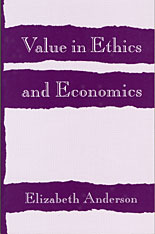
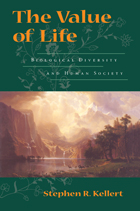
The Value of Life is an exploration of the actual and perceived importance of biological diversity for human beings and society. Stephen R. Kellert identifies ten basic values, which he describes as biologically based, inherent human tendencies that are greatly influenced and moderated by culture, learning, and experience. Drawing on 20 years of original research, he considers:
- the universal basis for how humans value nature
- differences in those values by gender, age, ethnicity, occupation, and geographic location
- how environment-related activities affect values
- variation in values relating to different species
- how vlaues vary across cultures
- policy and management implications

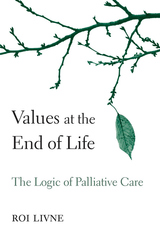
This insightful study examines the deeply personal and heart-wrenching tensions among financial considerations, emotional attachments, and moral arguments that motivate end-of-life decisions.
America’s health care system was built on the principle that life should be prolonged whenever possible, regardless of the costs. This commitment has often meant that patients spend their last days suffering from heroic interventions that extend their life by only weeks or months. Increasingly, this approach to end-of-life care is coming under scrutiny, from a moral as well as a financial perspective. Sociologist Roi Livne documents the rise and effectiveness of hospice and palliative care, and growing acceptance of the idea that a life consumed by suffering may not be worth living.
Values at the End of Life combines an in-depth historical analysis with an extensive study conducted in three hospitals, where Livne observed terminally ill patients, their families, and caregivers negotiating treatment. Livne describes the ambivalent, conflicted moments when people articulate and act on their moral intuitions about dying. Interviews with medical staff allowed him to isolate the strategies clinicians use to help families understand their options. As Livne discovered, clinicians are advancing the idea that invasive, expensive hospital procedures often compound a patient’s suffering. Affluent, educated families were more readily persuaded by this moral calculus than those of less means.
Once defiant of death—or even in denial—many American families and professionals in the health care system are beginning to embrace the notion that less treatment in the end may be better treatment.
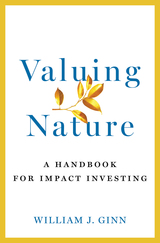
NatureVest founder William Ginn outlines the emerging private sector investing opportunities in natural assets such as green infrastructure, forests, soils, and fisheries. The first part of Valuing Nature examines the scope of nature-based impact investing while also presenting a practical overview of its limitations and the challenges facing the private sector. The second part of the book offers tools for investors and organizations to consider as they develop their own projects and tips on how nonprofits can successfully navigate this new space. Case studies from around the world demonstrate how we can use private capital to achieve more sustainable uses of our natural resources without the unintended consequences plaguing so many of our current efforts.
Valuing Nature provides a roadmap for conservation professionals, nonprofit managers, and impact investors seeking to use market-based strategies to improve the management of natural systems.
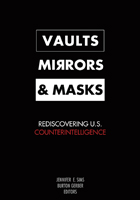
Decision makers matching wits with an adversary want intelligence—good, relevant information to help them win. Intelligence can gain these advantages through directed research and analysis, agile collection, and the timely use of guile and theft. Counterintelligence is the art and practice of defeating these endeavors. Its purpose is the same as that of positive intelligence—to gain advantage—but it does so by exploiting, disrupting, denying, or manipulating the intelligence activities of others. The tools of counterintelligence include security systems, deception, and disguise: vaults, mirrors, and masks.
In one indispensable volume, top practitioners and scholars in the field explain the importance of counterintelligence today and explore the causes of—and practical solutions for—U.S. counterintelligence weaknesses. These experts stress the importance of developing a sound strategic vision in order to improve U.S. counterintelligence and emphasize the challenges posed by technological change, confused purposes, political culture, and bureaucratic rigidity. Vaults, Mirrors, and Masks skillfully reveals that robust counterintelligence is vital to ensuring America's security.
Published in cooperation with the Center for Peace and Security Studies and the George T. Kalaris Memorial Fund, Edmund A. Walsh School of Foreign Service, Georgetown University.
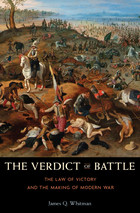
Today, war is considered a last resort for resolving disagreements. But a day of staged slaughter on the battlefield was once seen as a legitimate means of settling political disputes. James Whitman argues that pitched battle was essentially a trial with a lawful verdict. And when this contained form of battle ceased to exist, the law of victory gave way to the rule of unbridled force. The Verdict of Battle explains why the ritualized violence of the past was more effective than modern warfare in bringing carnage to an end, and why humanitarian laws that cling to a notion of war as evil have led to longer, more barbaric conflicts.
Belief that sovereigns could, by rights, wage war for profit made the eighteenth century battle’s golden age. A pitched battle was understood as a kind of legal proceeding in which both sides agreed to be bound by the result. To the victor went the spoils, including the fate of kingdoms. But with the nineteenth-century decline of monarchical legitimacy and the rise of republican sentiment, the public no longer accepted the verdict of pitched battles. Ideology rather than politics became war’s just cause. And because modern humanitarian law provided no means for declaring a victor or dispensing spoils at the end of battle, the violence of war dragged on.
The most dangerous wars, Whitman asserts in this iconoclastic tour de force, are the lawless wars we wage today to remake the world in the name of higher moral imperatives.

Luxury. The word alone conjures up visions of attractive, desirable lifestyle choices, yet luxury also faces criticism as a moral vice harmful to both the self and society. Engaging ideas from business, marketing, and economics, The Vice of Luxury takes on the challenging task of naming how much is too much in today's consumer-oriented society.
David Cloutier’s critique goes to the heart of a fundamental contradiction. Though overconsumption and materialism make us uneasy, they also seem inevitable in advanced economies. Current studies of economic ethics focus on the structural problems of poverty, of international trade, of workers' rights—but rarely, if ever, do such studies speak directly to the excesses of the wealthy, including the middle classes of advanced economies. Cloutier proposes a new approach to economic ethics that focuses attention on our everyday economic choices. He shows why luxury is a problem, explains how to identify what counts as the vice of luxury today, and develops an ethic of consumption that is grounded in Christian moral convictions.
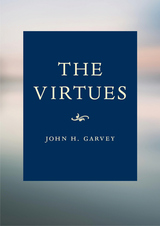
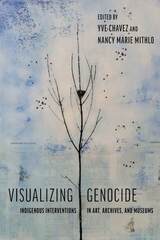
Rather than dwelling simply in celebratory appraisals of Indigenous survival, this unprecedented volume tracks how massacres, disease, removals, abrogated treaties, religious intolerance, theft of land, and relocation are conceived by contemporary academics and artists. Contributors address indigeneity in the United States, Norway, Canada, Australia, and the Caribbean in scholarly essays, poems, and artist narratives. Missions, cemeteries, archives, exhibitions, photography, printmaking, painting, installations, performance, music, and museums are documented by fourteen authors from a variety of disciplines and illustrated with forty-three original artworks.
The authors offer honest critique, but in so doing they give hopeful and concrete strategies for the future. This powerful collection of voices employs Indigenous epistemologies and decolonial strategies, providing essential perspectives on art and visual culture.
Contributors
T. Christopher Aplin
Emily Arthur
Marwin Begaye
Charlene Villaseñor Black
Yve Chavez
Iris Colburn
Ellen Fernandez-Sacco
Stephen Gilchrist
John Hitchcock
Michelle J. Lanteri
Jérémie McGowan
Nancy Marie Mithlo
Anne May Olli
Emily Voelker
Richard Ray Whitman
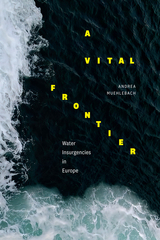

Gluck begins by taking us inside the laboratory of Harry F. Harlow at the University of Wisconsin, where Gluck worked as a graduate student in the 1960s. Harlow’s primate lab became famous for his behavioral experiments in maternal deprivation and social isolation of rhesus macaques. Though trained as a behavioral scientist, Gluck finds himself unable to overlook the intense psychological and physical damage these experiments wrought on the macaques. Gluck’s sobering and moving account reveals how in this and other labs, including his own, he came to grapple with the uncomfortable justifications that many researchers were offering for their work. As his sense of conflict grows, we’re right alongside him, developing a deep empathy for the often smart and always vulnerable animals used for these experiments.
At a time of unprecedented recognition of the intellectual cognition and emotional intelligence of animals, Voracious Science and Vulnerable Animals is a powerful appeal for our respect and compassion for those creatures who have unwillingly dedicated their lives to science. Through the words of someone who has inflicted pain in the name of science and come to abhor it, it’s important to know what has led this far to progress and where further inroads in animal research ethics are needed.
READERS
Browse our collection.
PUBLISHERS
See BiblioVault's publisher services.
STUDENT SERVICES
Files for college accessibility offices.
UChicago Accessibility Resources
home | accessibility | search | about | contact us
BiblioVault ® 2001 - 2024
The University of Chicago Press









